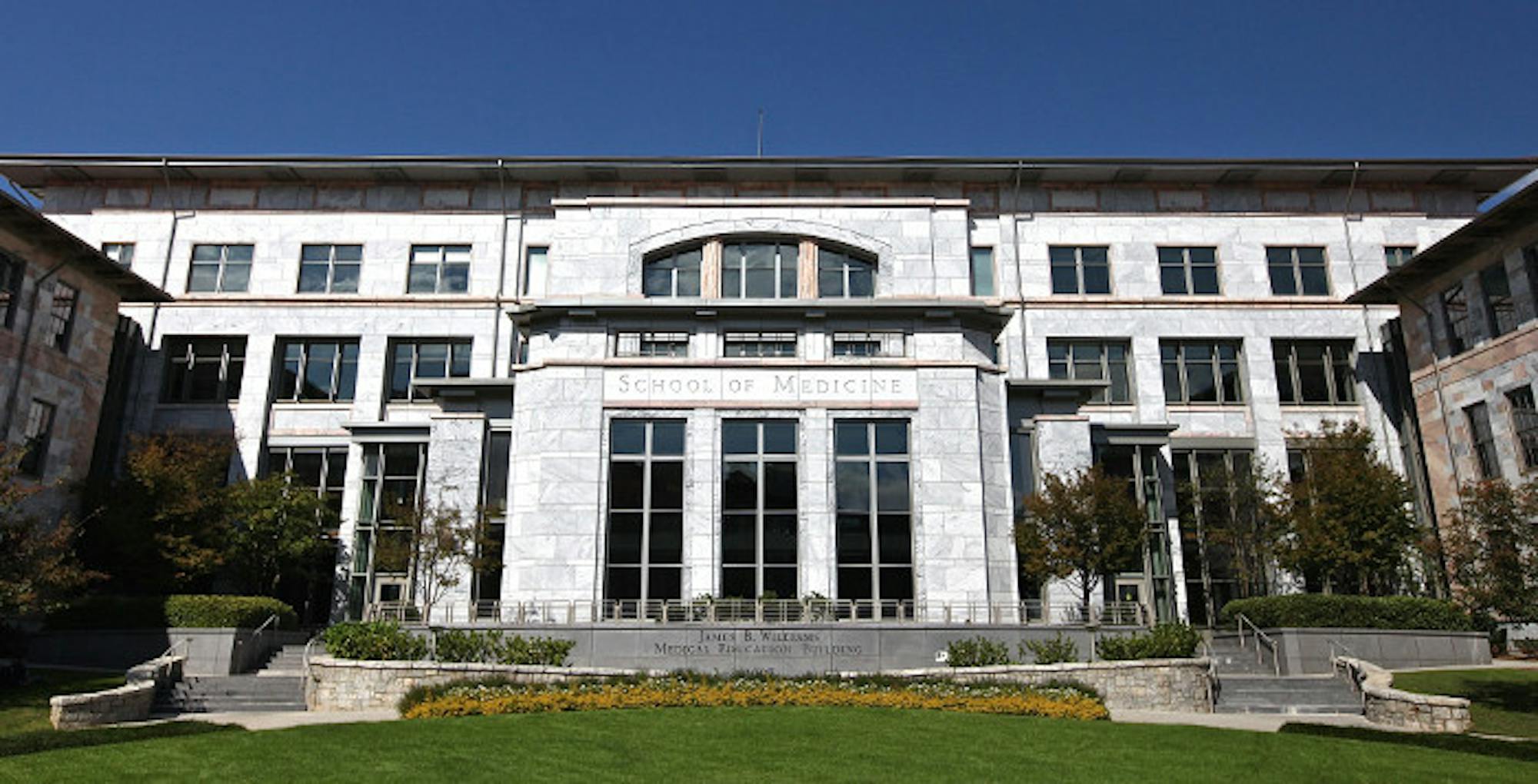
James B. Williams Medical Education Building | Photo by Jason Oh
By Harmeet Kaur Digital Editor
Emory's Jean and Paul Amos Parkinson's Disease and Movement Disorders Program was named a Center of Excellence by the National Parkinson Foundation (NPF) on Oct. 31.
The center, which is a part of the School of Medicine, is the 25th center in the country to receive this designation, according to an Oct. 31 NPF press release. Specialty clinics are awarded the Center of Excellence title after an application and review process by NPF.
"[The designation] indicates that we are a leading Parkinson's disease center internationally," Stewart Factor, director of the Jean and Paul Amos Parkinson's Disease and Movement Disorders Program, wrote in an email to the Wheel.
The NPF evaluates centers specializing in Parkinson's disease on three key criteria: excellence in research, clinical excellence and community leadership, according to NPF Vice President of Research and Professional Programs Peter Schmidt. According to Schmidt, commendable centers not only participate in clinical trials but also have researchers who lead their own studies. Schmidt added that Centers of Excellence also provide access to the newest therapies and forge strong relationships with physicians who care for medically underserved populations.
"Emory's large and excellent team, breadth of research and history of research success and role as a clinical and scientific leader clearly qualify the center as a potential NPF Center of Excellence," Schmidt wrote in an email to the Wheel. "Our review of their application and our site visit led by peer reviewers helped us to understand that the Emory team's and NPF's goals and approach are aligned."
According to its website, Emory's center for Parkinson's disease research focuses on improving understanding of movement problems in Parkinson's disease at the brain network level. Factor wrote to the Wheel that in recent years, the center has been responsible for the discovery of several new genes in Parkinson's disease and has also extensively studied the role of brain circuitry in the disease.
Additionally, Emory researcher and William Timmie Professor of Neurology at the School of Medicine Mahlon DeLong is one of the scientists who played a major role in developing deep brain stimulation as a treatment for Parkinson's. This treatment reduces tremor and repairs motor function in patients with advanced Parkinson's disease.
The Mayo Clinic writes on its website that Parkinson's disease is a neurodegenerative disease for which there is no cure, usually affecting people aged 60 or older. The disease usually causes shaking and difficulty in walking, movement and coordination in those affected.
According to the National Institutes of Health, Parkinson's affects about half a million people in the United States.
Emory's Parkinson's program is the first new center invited to apply in several years, Schmidt added.
"Our review reinforced our impression that Emory's team is a leader in innovation across domains, from their historic contribution to the development of DBS, to their leadership in basic science, to their clinical science leadership and innovation," Schmidt wrote.
–By Harmeet Kaur, Digital Editor





